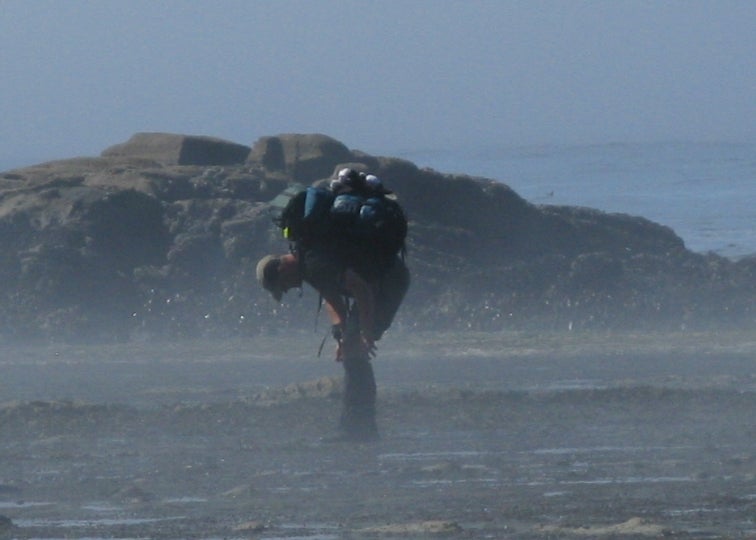Opinion: This is Why We Backpack

'Photo by Ground Sleeper/flickr'
Even though they were clearly having a good time, the majority of the thru-hikers were sizzled with sunburns and hobbled by blisters. They appeared exhausted, dehydrated, and lame, and one even wondered aloud what manner of insanity had convinced them that the idea of walking for half a year through some of the toughest terrain in North America was a good one.
I observed the hikers from afar at the annual CDT Trail Days event in Silver City, New Mexico, where I live. It was April, meaning that this was the first wave of northbound thru-hikers to have completed a poorly marked, bone-dry, two-week stretch through New Mexico’s rugged Bootheel. (“The Bootheel kicked my ass,” lamented one experienced long-distance hiker.) The CDT Trail Days gathering was something of an institutionalized airing of grievances.
Suffering is, of course, a common component of many otherwise worthwhile activities. Triathlons come to mind. But misery achieves its practical apex when one is carrying a weighty load over long, challenging distances. For days on end. It is as much part and parcel of backpacking as instant oatmeal and moleskin.
There can be bad weather, swarms of insects, and chronic toenail loss. Record-setting superhumans notwithstanding, most of us backpackers huff and puff into camp and plop our bug-bit selves down onto the ground with a resounding thud. We then must rouse our weary carcasses to pitch the tent, purify water, cook dinner, wash dishes, and crawl into a sleeping bag that could stand a good fumigating. In the predawn chill, we emerge stiffly, change into still-damp trail clothes that would gag a goat, tend to our blisters, and then load up and shoulder a pack that somehow seems heavier than it was the day before. And yet, this we do in the name of rest and relaxation, day after day, mile after mile. We have, in fact, raised suffering to an art form.
But if backpacking is so damned hard, why do we continue to do it? “To immerse ourselves in beauteous wilderness” is the most obvious answer, followed by “to get away from civilization,” “to shed a few pounds,” and “because my partner talked me into it.”
But I submit that there’s one more reason we subject ourselves to this labor of love. We may not realize it when it’s whipping gale-force winds or when we’re running low on food, but we like the feeling we get from overcoming pain and discomfort. We like persevering and being the leading character in our own David-beats-Goliath stories.
But why must our narratives end at the trailhead? What if we brought these lessons back to real life and attacked rush-hour traffic with the same can-do attitude we do when crossing a seemingly insurmountable mountain pass? After all, if we can stoically march along for 43 miles sporting the worst case of thigh chafe since Hannibal’s poorly attired troops crossed the Alps, then we ought to be able to flip that Zen switch and easily handle the line at the Department of Motor Vehicles. By the same token, if we can endure a night tenting in a marsh after voluntarily passing over a lakeside bluff, parent-teacher conferences should be a breeze. And is slow restaurant service anything to gripe about when you’ve subsisted on trail mix and hot sauce alone? No matter how many blisters we bear or how inflamed the tendons in our knees are, when we’re in the backcountry, we’ve got to hoist a torture device known as a pack, and keep hiking.
I say we do that more. I say we learn from our suffering and soldier on through real-world problems. Take what you learn when the miles are slow, and bring it back with you. I bet you’ll find the frontcountry version of yourself is a much more decent and pleasant human being when he or she takes cues from the backcountry version. That’s reason enough to keep backpacking.